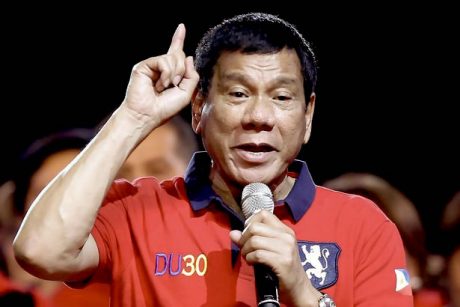
What’s up with all this talk about ousting sitting Philippine President Rodrigo Duterte? That’s a no-brainer. There are certain people and parties so hungry for power that the campaign to seize Malacanang had not ended in May 2016. So it is hardly surprising that, rather than work with the incumbent Duterte administration, the Opposition seek to destroy it.
I can’t speak for all Get Real Post writers who were critical of former President Benigno Simeon ‘BS’ Aquino III, but over the course of his six-year term, there was never a time that I wished Aquino to be deposed extra-constitutionally. I and many of my colleagues may have been the harshest critics of Aquino back then, but I cannot recall any suggestion that the solution to the problems besetting the Philippines under his rule was an ouster.
To end his term prematurely would have given him and his supporters the benefit of the doubt as to whether or not he would have ended his term being regarded a great leader. As it turns out, his failure as a president and the profound, broad-based disillusionment it created amongst Filipinos paved the way for Duterte’s win in 2016 on the back of a protest vote — and ended a 30-year era characterised by the domination of Filipinos’ minds by the Yellow “people power” ideology of the Aquino-Cojuangco clan.
Indeed, what happened to former President Joseph ‘Erap’ Estrada is a case study of how ousted presidents could, enjoying that benefit of the doubt, mount a victorious comeback. Erap, despite having been ousted just three years into his term via a “people power” revolt in 2001, almost won the 2010 presidential election and then went on to become mayor of Manila following a successful bid in the 2013 election.
Today, we are, of course, talking about an Opposition camp famous for their addiction to “people power”-styled “revolutions”. So it is hardly surprising that talk of another one such is in the air this early. In fact, it is interesting that a key figure in the 1986 “revolution”, former President Fidel Ramos, is at the centre of speculation surrounding this possibility.
Credited for “handing” Duterte the presidency, Ramos has suddenly turned into a vocal critic of the Duterte government. Though his motives and timing for criticising Duterte are reportedly “unclear”, many agree that “he may be putting his foot down to salvage ties with Washington frayed by Duterte’s almost daily barrage of expletive-laced insults at Manila’s longtime ally.”
Suffice to say, a move to oust Duterte now will likely seriously backfire. Duterte remains a popular president with a following of fierce social media activists that one self-appointed “thought leader” suggests have “weaponised” the Internet. He is also the first president coming from the Philippines’ deep south in Mindanao, a region which holds a long-standing grudge with the Philippines’ northern tribes seen to be ruling the archipelago from the capital in its northern island of Luzon, now deridingly called “Imperial Manila”.
Politicians who traditionally hold court in Imperial Manila are now widely-seen to be in cahoots with the established order of oligarchs and big business taipans who benefit from the status quo that Duterte is seemingly dismantling. A move to oust Duterte now could foment a fatal divide in an already-polarised society like the Philippines that could be disastrous — even bloody.
The best recourse is to allow democracy to, well, be a democracy. The only thing certain today is that Duterte will either succeed or fail as president after six years. Cutting that term short will result in bets on either outcome left unresolved. It will not result in the same electoral closure that had decisively put up Aquino and his inner camp of Yellow supporters as abjectfailures and effectively closed a 30-year era of Yellow ascendancy.

No comments:
Post a Comment